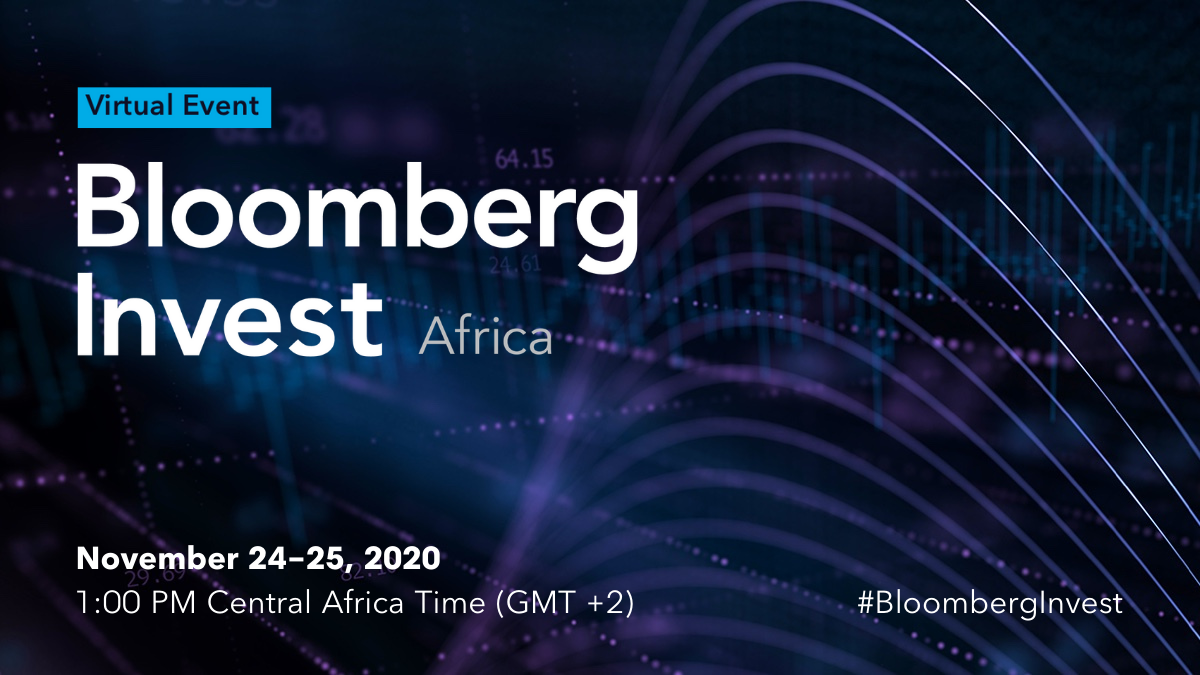
Event Highlights
Bloomberg Invest Africa
By Yazhou Sun, Bloomberg Live
Covid-19 and its subsequent lockdowns have sparked Sub-Saharan Africa’s first recession in 25 years. The regional economy is forecast to shrink by 5.1% in 2020 and GDP losses potentially hitting $236 billion.
But while Africa is down, it’s definitely not out. The factors that made Africa an attractive investment destination pre-Covid are still there: a talented youthful population; a three-trillion-dollar continental free trade deal; low-cost manufacturing opportunities; and an improving business environment and macroeconomic governance.
To lure foreign investors back in a significant way, regional stakeholders must highlight rock solid economic plans for Covid-19 recoveries. Join us at Bloomberg Invest Africa as we convene regional and global finance and business leaders to chart a way forward to maximize Africa’s post pandemic growth trajectory.
At Bloomberg’s inaugural Invest Africa event, Bloomberg’s editorial team had a series of conversations with key voices and leaders in the region. Speakers included:
- John Copelyn, Chief Executive Officer, Hosken Consolidated Investments
- Kevin Daly, Investment Director, Emerging Market Debt, Aberdeen Standard Investments
- H.E. Vera Daves de Sousa, Minister of Finance, Angola
- James Formby, Chief Executive Officer, Rand Merchant Bank
- Dr. Leila Fourie, Chief Executive Officer, Johannesburg Stock Exchange
- Nitin Gajria, Director – Sub Saharan Africa, Google
- Jean Gulbenk Gurunlian, Founder, Webb Fontaine; Trade Technology Investor
- Trudi Makhaya, Economic Advisor to His Excellency President Cyril Ramaphosa
- H.E. Tito Mboweni, Minister of Finance, Republic of South Africa
- Dr. John Nkengasong, Director, Africa CDC (Centers for Disease Control and Prevention)
- Wale Tinubu, Group CEO, Oando
- Hon. Ambassador Ukur Yatani, EGH, Cabinet Secretary for The National Treasury & Planning, Republic of Kenya
- Tope Alake, Companies Reporter, Bloomberg
- Manus Cranny, Co-Anchor, Bloomberg Daybreak Bloomberg TV
- Yinka Ibukun, West Africa Bureau Chief, Bloomberg
- Mallika Kapur, Deputy Global Editor, Bloomberg Live
- Janice Kew, Consumer and Healthcare Reporter, Bloomberg
- David Malingha, East Africa Bureau Chief, Bloomberg
- Alonso Soto, Nigeria Correspondent, Bloomberg
Below are some highlights from the event.
Click here to access videos of all the sessions.
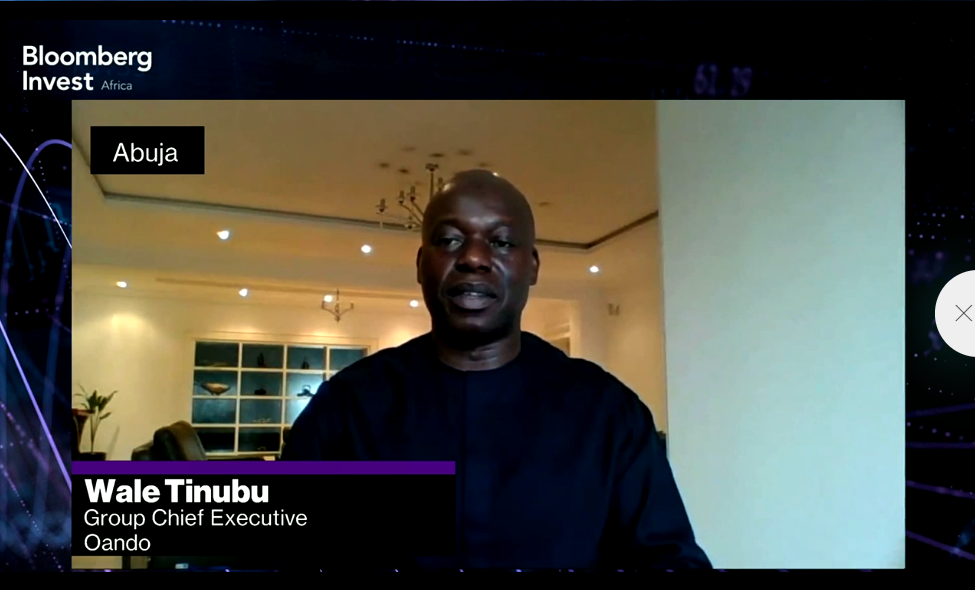
Wale Tinubu, Group CEO, Oando opened the summit. He talked about the importance of ensuring that the gains of the last few years are not lost, and to focus on Africa’s strengths. “This is a time to focus on infrastructure, power, industrialisation as well as our traditional mainstays of mining and agriculture.
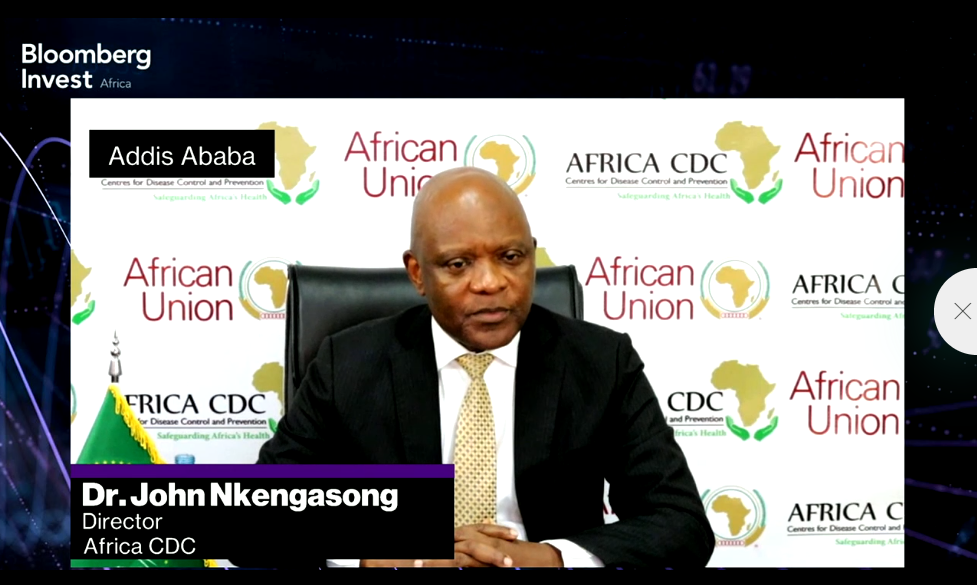
On procuring a vaccine for everyone: In discussing how the continent has organised itself through the African Union in preparation for a possible vaccine, Dr. John Nkengasong, Director, Africa CDC talked about a strategic plan with 3 pillars. The first being the importance of Africa as continent in engaging in clinical trials. The second focusing on vaccine procurement and financing and the third pillar around preparedness and delivery. Nkengasong explained, “Suppose a vaccine was available today, how do you get that across the country in a speedy way, to the right population, and who is the right population? And what do we really mean by fair allocation and equity in distribution?”
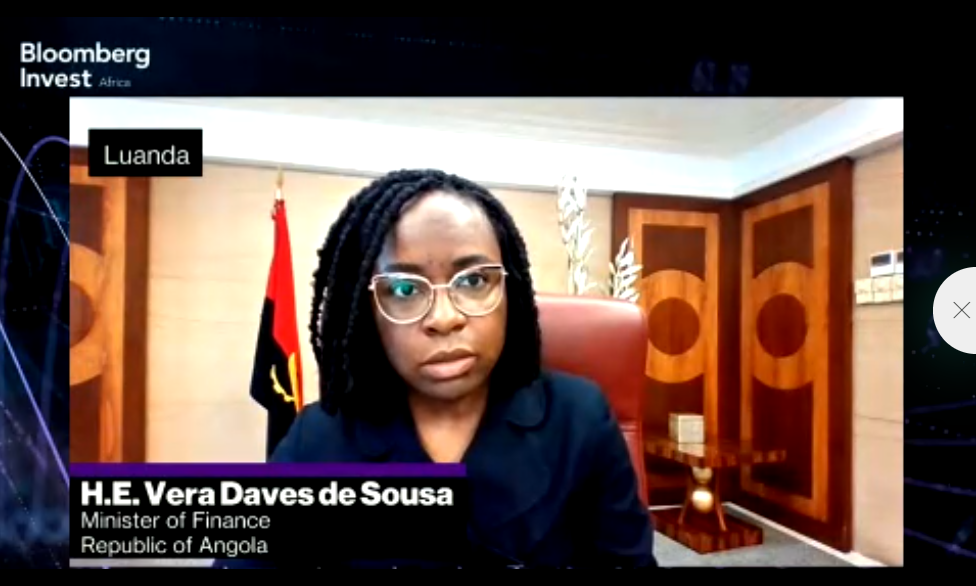
On the future of Angola: Responding to a question on when Angola expects to see a return to growth, H.E. Vera Daves de Sousa, Minister of Finance, Angola said they expected GDP to stop dropping in 2021. “We have some international houses, even the IMF, saying that we will grow overall, but our expectation is to face a stagnation, but with the non-oil sector growing 2.1%.” De Sousa said they were reaching an inflection point after which they would hope to see growth. “We are counting on agriculture, fisheries and diamond mining as main drivers of growth of the non-oil sector.”
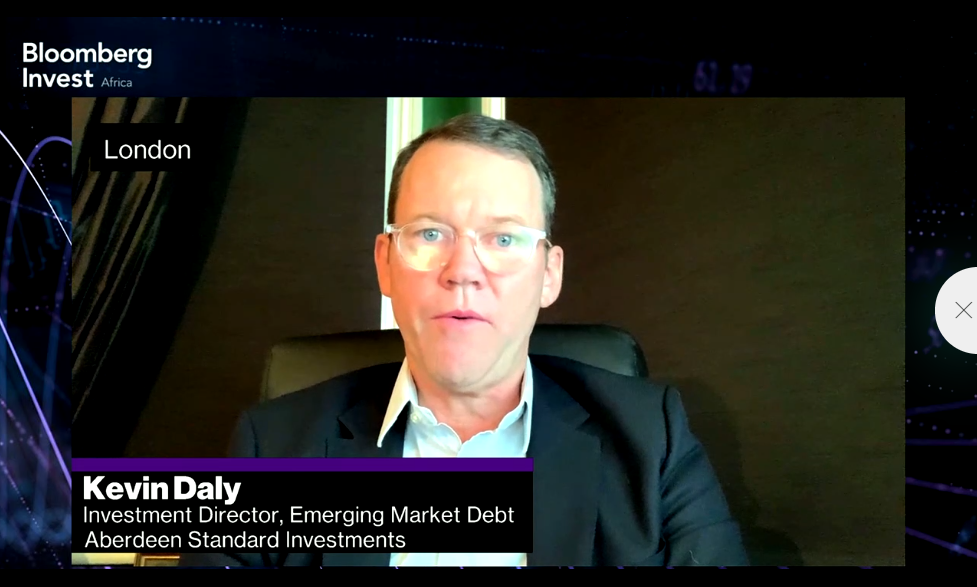
On talking about debt: Kevin Daly, Investment Director, Emerging Market Debt, Aberdeen Standard Investments observed, “What we’ve encountered during this pandemic is a liquidity crisis which we as investors, and the issuers most importantly, are trying to avoid turning into an insolvency crisis.” When drawn on how the new Biden administration might approach the global debt relief effort in the region, Daley opined they may draw a stronger line under official sector relief which may lead to a stronger effort to restructure private sector debt, but that there have not yet been any official signals from the incoming administration to confirm that yet.
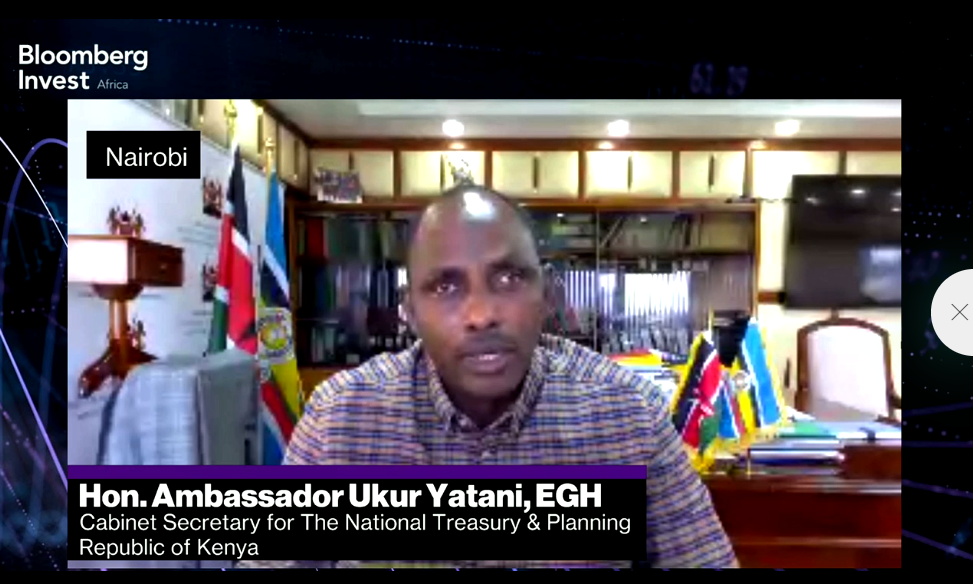
On the future of Kenya: The Kenyan economy contracted by 5.7% in the second quarter after Covid-19 decimated the country’s tourism sector. However, Ambassador Ukur Yatani, Cabinet Secretary for The National Treasury & Planning says there is a silver lining for recovery- both inflation and interest rate remain relatively low. To raise and conserve funds, Kenya is seeking a loan of as much as $2.3 billion from the International Monetary Fund (IMF). “We’re looking at $725 million in this fiscal year through June,” Yatani said.
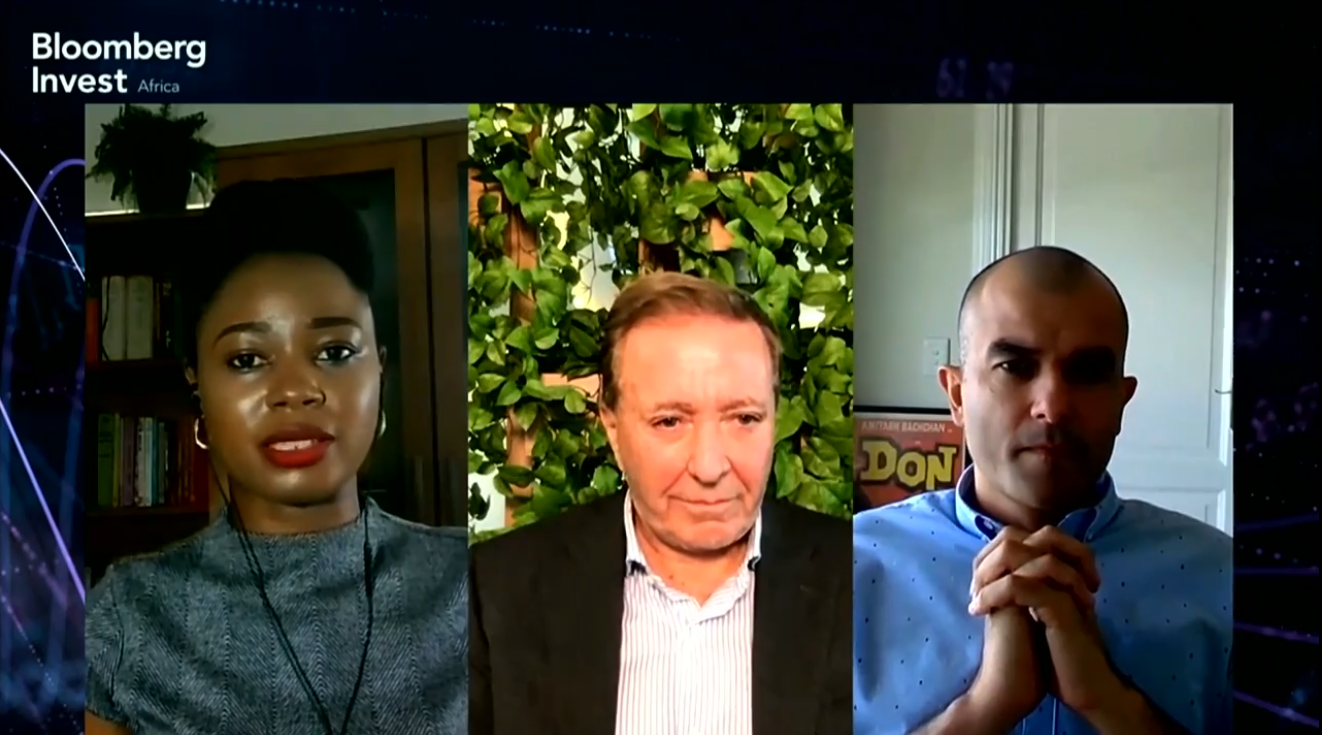
On digital transformation: It’s doomsday if you’re not digital in the post-Covid era. Digital transformation has leapfrogged in Africa as a consequence of the pandemic, and digital infrastructure is booming. Google is joining forces with Kenya’s largest telecoms operator, Safaricom, to get more 4G-enabled smartphones in the hands of Kenyans. “We’re thinking about how do we help more people get on the internet? That’s really how we’re looking at our mission,” Nitin Gajria, Director of Sub Saharan Africa at Google said. Jean Gulbenk Gurunlian, Founder, Webb Fontaine, explained his company’s outlook of centralizing and monetizing data in Africa. “We are in the field of trade. And we are processing a large amount of the trade data,” Gurunlian said.
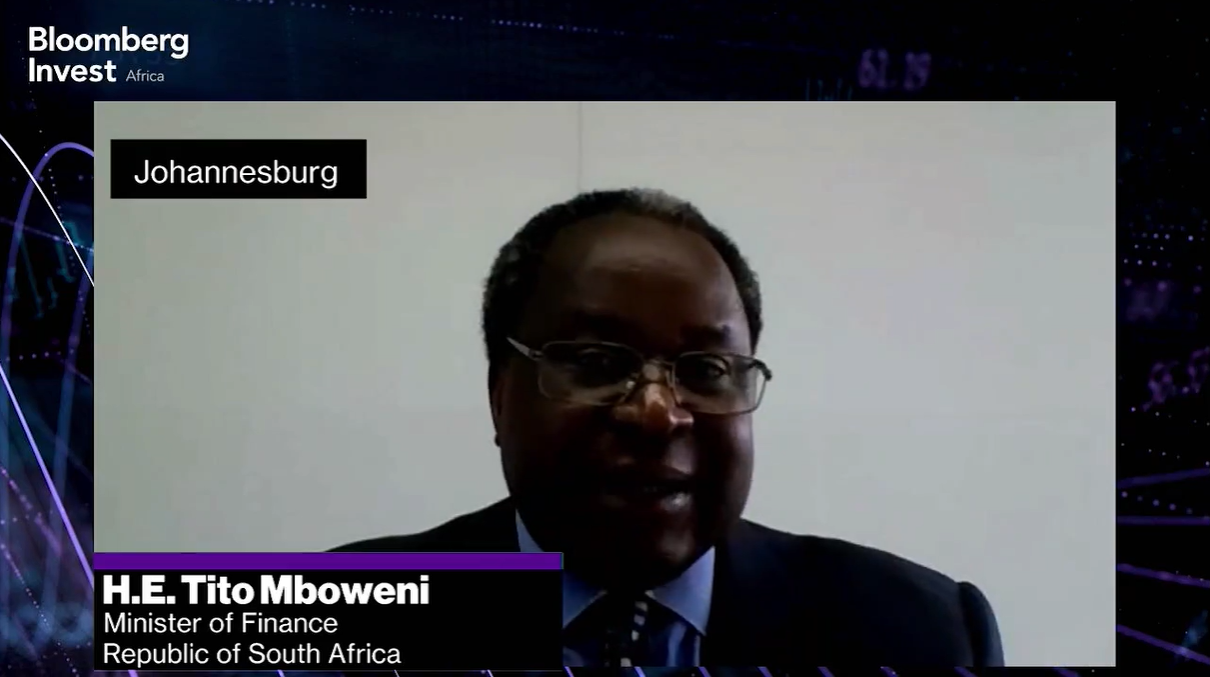
On South Africa’s wage bill: When asked if South Africa is capable of reining in government spending by cutting public-sector wages, Finance Minister Tito Mboweni said: “We have to do it. There’s no other option.” Mboweni insisted that “those with jobs should be grateful” and that “A 30% cut in their salaries is nothing compared to the dire circumstances in which we find ourselves.”
On the fate of South African Airways: South Africa’s Finance Minister Tito Mboweni also responded to the uproar he caused by asking if his country needs a national airline on Twitter. South African Airways (SAA) hasn’t turned a profit since 2011, surviving instead on bailouts over the past three years. “The government has made a decision to support the restructured airline, not the existing one,” Mboweni said.
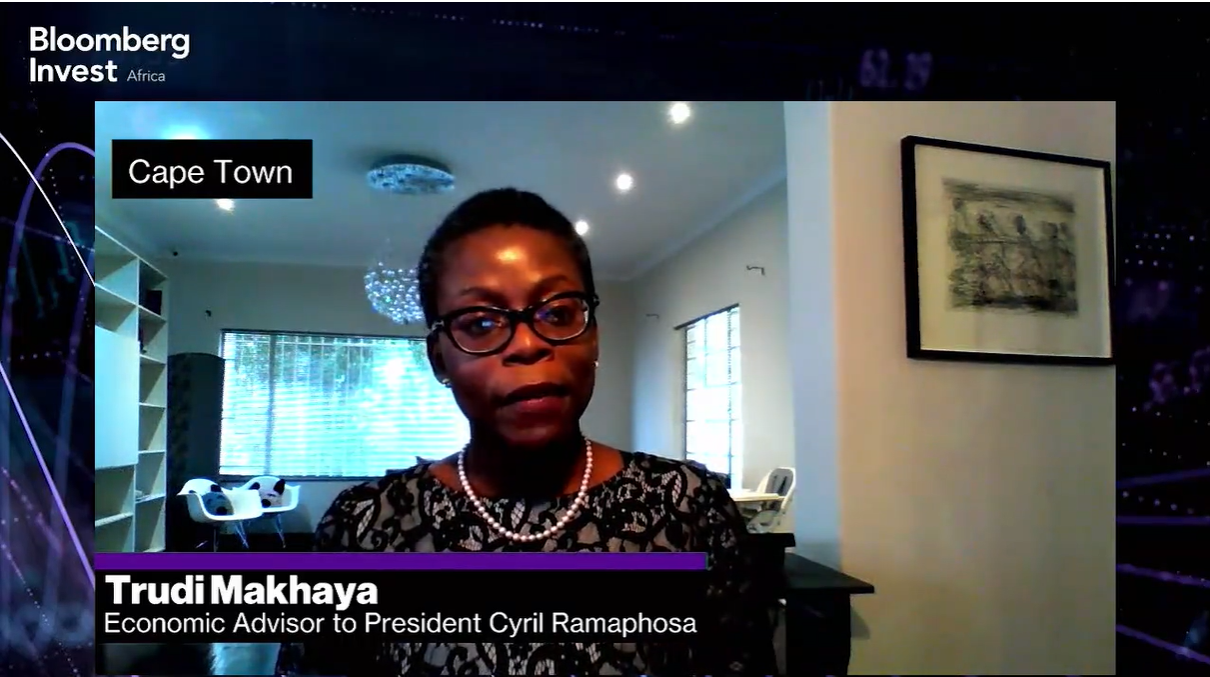
On rebuilding South Africa’s economy: When asked how South Africa can rebuild its economy, Trudi Makhaya, Economic Advisor to His Excellency President Cyril Ramaphosa said an emphasis on infrastructure, energy security and structural reform will underpin the road map. Makhaya admitted that the pace of reform has been slow, but reassured that: “The president has made it clear that it’s all about implementation, implementation, implementation. If certain things don’t happen, he’s made it clear that heads will roll.”

James Formby, CEO of Rand Merchant Bank said renewable energy, telecom and port infrastructure will be key growth areas to rebuilding South Africa’s economy. John Copelyn, CEO of Hosken Consolidated Investments, cautioned the transition from fossil fuels to renewable energy won’t happen overnight, and there are still many opportunities in deep sea drilling.

Bloomberg Invest Africa is proudly sponsored by

——————————
Join the Conversation: #BloombergInvest
Instagram: @BloombergLive
LinkedIn: Bloomberg Live
Twitter: @BloombergLive
Interested in more Bloomberg Live virtual events? Sign up here to get alerts.
——————————